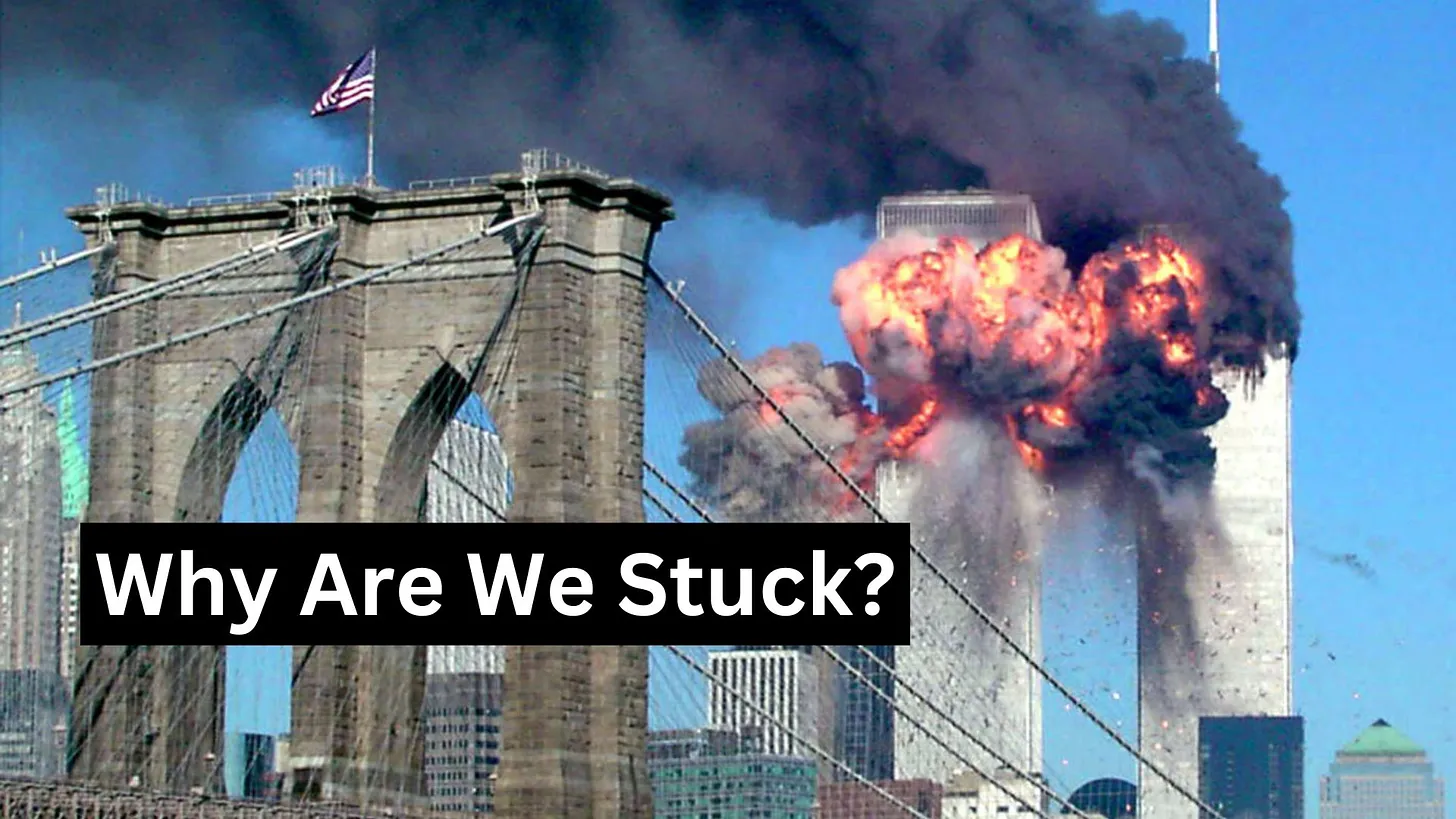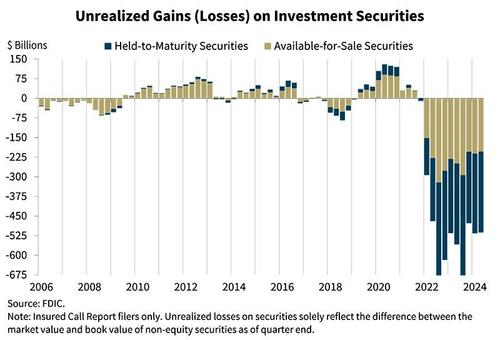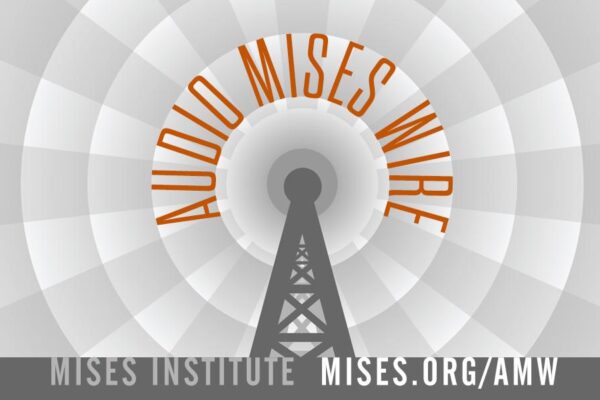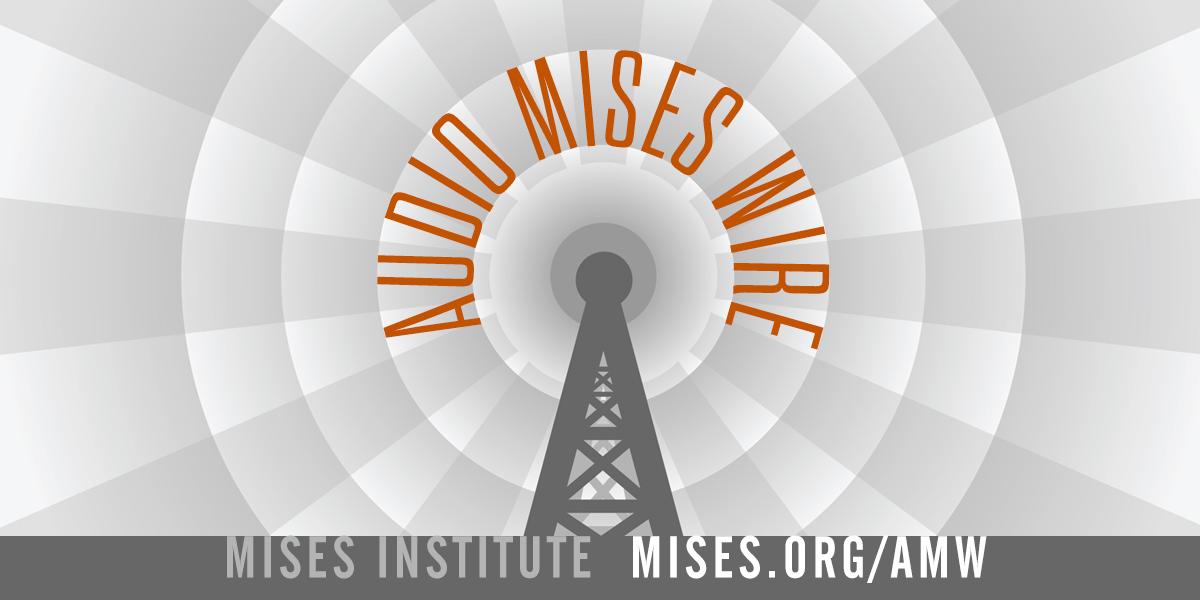Authored by Brandon Smith via Alt-Market.us,
One of the most common assumptions I come across in the survival-sphere is the idea that the next world war would automatically necessitate global nuclear conflict and a Mad Max-like outcome. In other words, a lot of people assume we aren’t in a world war until the nukes start flying and the survivors are left fighting in soda can armor over an irradiated desert. This is a dangerous misunderstanding for a lot of reasons.
What people are overlooking is the fact that we are ALREADY in the middle of WWIII. They don’t realize it because they’ve based their entire concept of world war on Hollywood fantasy.
There are many ways in which wars are fought. In our current situation WWIII is being waged through proxies like Ukraine and Israel (and maybe Taiwan in the near future). The war is also being fought on the global economic stage using sanctions, inflation and the dumping of the US dollar as the world reserve. To be sure, these situations can easily escalate into something bigger and that is exactly what I suspect they will do. However, planetary nuclear war is the least likely scenario.
Survival and preparedness communities have a tendency to hyper-focus on the obviously Apocalyptic. We talk a lot about EMP strikes and split-second grid down calamities. We talk about solar flares, overnight economic crashes and nuclear holocaust. I think survivalists do this because it acts as a mental exercise – A way to better clarify what the best preparedness solutions are in the majority of cases, including the worst cases.
But as I’ve said for many years, collapse is a process, not an event.
These things happen slowly, and then all at once. If you went back in time ten years ago and warned people that in 2024 the US would be in the middle of a stagflationary crisis with a 30%-50% average price increase on all necessities, they would probably dismiss you as a doom-monger. Well, guess what, that’s exactly what a handful of alternative economists (myself included) were doing well over a decade ago, and we were dismissed over and over again – Welcome to our world.
The reason people refused to believe us is because the danger was not immediately obvious. The economic threat was not hitting them in their wallet yet. Stock markets seemed to be doing fine. The jobs market was still functioning somewhat normally. They could only view economic crisis through the lens of a total collapse. The idea that it would happen incrementally never crossed their minds.
Even today there are still people who argue that everything is fine. The stock market is “fine.” The labor market is “healthy.” If you suggest all is not well, you’re a “chicken little.” This is the incredible danger of having a Hollywood fantasy idea of collapse. We may never get to 100% systemic implosion; but even a 50% collapse is still a survival situation.
The same dynamic goes for WWIII. We must not overlook the dangers right in front of us simply because intercontinental ballistic nuclear missiles aren’t crisscrossing the sky.
Consider the proxy battleground case for a moment.
In October of 2023 I published an article titled ‘It’s A Trap! The Wave Of Repercussions As The Middle East Fights “The Last War.”’ In it I stated:
“Israel is going to pound Gaza into gravel, there’s no doubt about that. A ground invasion will meet far more resistance than the Israelis seem to expect, but Israel controls the air and Gaza is a fixed target with limited territory. The problem for them is not the Palestinians, but the multiple war fronts that will open up if they do what I think they are about to do (attempted sanitization).
Lebanon, Iran and Syria will all immediately engage and Israel will not be able to fight them all – Hell, the Israelis got their asses handed to them by Lebanon alone in 2006. This will result in inevitable demands for US/EU intervention.”
I also warned on the potential motives behind escalation in the Middle East:
“The timing of the conflict in Israel is incredibly beneficial to globalists, and this might explain Israel’s bizarre intel failure [October 7th]. Just as US and British leaders had prior knowledge of a potential Japanese attack on Pearl Harbor in 1941 but warned no one because they WANTED to compel Americans to fight in WWII, the Palestinian incursion serves a similar purpose.”
I my article ‘Iran vs Israel: What Happens Next Now That Shots Have Been Fired?’ published in April, I predicted:
“A ground war between Iran and Israel is inevitable if the tit-for-tat continues, and much of it will be fought (at least in the beginning) in Lebanon and perhaps Syria. Iran has a mutual defense pact with both countries and Lebanon is generally a proxy for Iranian defense policy.
Iran will have active troops or proxy forces in all of these regions, not to mention the Houthis in Yemen striking ships in the Red Sea. There are questions in terms of how Iraq will respond to this situation, but there’s not a lot of love between the current government and Israel or the US.”
Not surprisingly there was a contingent of people that argued these things would “never happen” and talk of war between Iran and Israel was “doom mongering.” Those people were wrong (yet again), and I was right. Iran and Israel have now essentially declared war on each other and are exchanging missile barrages as I write this. The ground war will begin in Lebanon and expand from there.
Just as in Ukraine, the looming danger is that war between Israel and Iran will draw in larger military powers like the US and Russia.
People dismiss this outcome because their modern conception of global war needs to change; this world war will not be fought exactly like those in the past.
This time the weapons of mass destruction will be financial and resource driven instead of nuclear. If Iran moves to blockade the Strait of Hormuz (which I believe is imminent), Americans can be harmed financially through energy shortages and gas price spikes even without our soldiers deployed to fight.
There’s also the question of our wide open borders and how many potential terrorists slipped into the US during the Biden Administration’s illegal immigration bonanza. How many attacks (or false flag attacks) are being organized right now?
The regional conflicts could spread and go on for a decade or longer. It all adds up to a world war, but it may never be officially declared a world war. Perhaps there will be a limited nuclear event somewhere; maybe a false flag or a limited strike. But a nuclear war is not necessary to create the kind of chaos the globalists are looking for.
People also need to understand that the powers-that-be also have a lot to risk should a war devolve into nuclear exchange. If it was really that easy for them to launch warheads, wipe out the majority of the human population and then establish a global dynasty, they would have done it a long time ago.
Global war on such a scale is inherently unpredictable. The elites have spent trillions of dollars and the better part of the last century constructing the most complex surveillance and control grid in history. It would be foolish to turn it all to ash in the blink of an eye and I highly doubt that’s the plan. They would be putting themselves and their legacy at risk of being erased forever.
Does this mean I will be ignoring the potential for a nuclear event? No. I will always keep it in mind and have preps ready just in case. A single nuke set off anywhere west of your home could result in radioactive fallout that would take around three to four weeks to dissipate. That said, the danger of these sceanrios might be overstated.
Here’s an interesting fact to ponder: The US government has tested at least 1050 explosive nuclear devices over the decades. Around 216 of those were atmospheric tests that resulted in massive fallout across the country. Some people in close proximity got sick over many years from these tests, but they didn’t result in an overnight mass death event. Perhaps, at a moderate distance, these weapons are not as dangerous as we’re led to believe?
The greater effect of nuclear weapons comes not just from the resulting damage to national infrastructure, but also mass psychological disruption. The economic system would take an immediate dive from even one strike, and it could be anywhere in the world. A single nuke in Ukraine would send shockwaves through already unstable markets. The supply chain and food supply could be quickly disrupted.
If the globalists wanted to accelerate a worldwide collapse, they wouldn’t need a nuclear war, just one well placed device.
The biggest danger from WWIII is not nuclear exchange, but the disturbing changes societies go through when conflict inspires mass fear. Totalitarianism is much easier to institute during such a war. Freedom of speech is often suppressed and criticism of the government is often criminalized. People who rebel against this are accused of “working with the enemy.” Military conscription is usually enforced and young people are sent off to die overseas over a conflagration that makes little sense.
The economy nose dives and the supply chain tightens. Price controls and rationing are initiated. Black markets flourish but those who participate are aggressively targeted by the government. In the case of the US, armed revolution in many states is a certainty.
Public planning should focus far more on these eventualities and less on Hollywood images of Apocalypse.
* * *
One survival food company, Prepper All-Naturals, has proactively dropped prices to allow Americans to stock up ahead of projected hikes in beef prices. Their 25-year shelf life steaks currently come at a 25% discount with promo code “invest25”.















